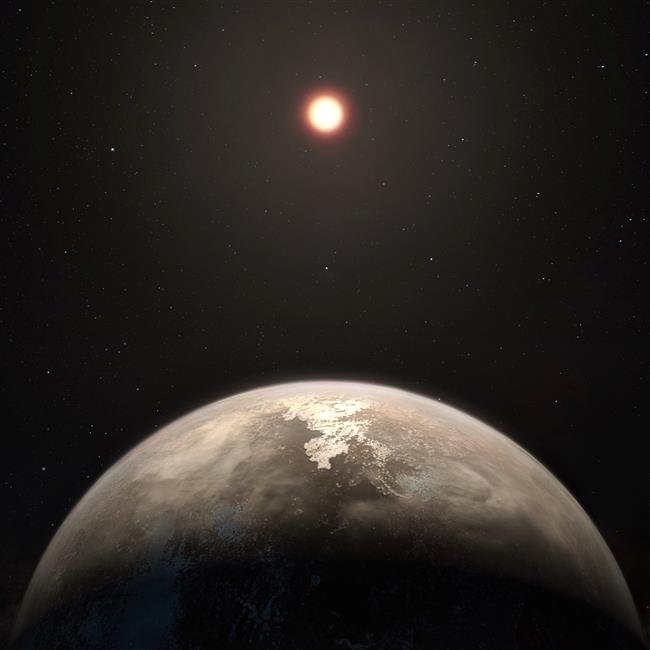Extrasolar planet may support life

A handout photo released on November 13, 2017 by the European Southern Observatory shows an artist's impression of the temperate planet Ross 128 b, with its red dwarf parent star in the background. This planet, which lies only 11 light-years from Earth, was found by a team using ESO's unique planet-hunting HARPS instrument. The new world is now the second-closest temperate planet to be detected after Proxima b. It is also the closest planet to be discovered orbiting an inactive red dwarf star, which may increase the likelihood that this planet could potentially sustain life. Ross 128 b will be a prime target for ESO's Extremely Large Telescope, which will be able to search for biomarkers in the planet's atmosphere.
A new extrasolar system planet can be added to a handful of fellow exoplanets which could theoretically support life, the European Southern Observatory said on Wednesday.
The ESO said it had discovered the planet, Ross 128b, orbiting a star within the constellation of Virgo and it was comparatively close to Earth at just 11 light years outside the solar system.
One light year is equivalent to 9.46 trillion kilometers.
But in inter-galactic terms that is not so far, said Xavier Bonfils, an astronomer for the French CNRS research center at the Grenoble Observatory for Sciences of the Universe.
Researchers said Ross 128b could potentially harbor life, as it has a similar mass to that of Earth — a multiple of 1.35 — and “its surface temperature could equally be close to that of Earth.”
Such environmental conditions could potentially support liquid water, which is indispensable to life as we know it.















